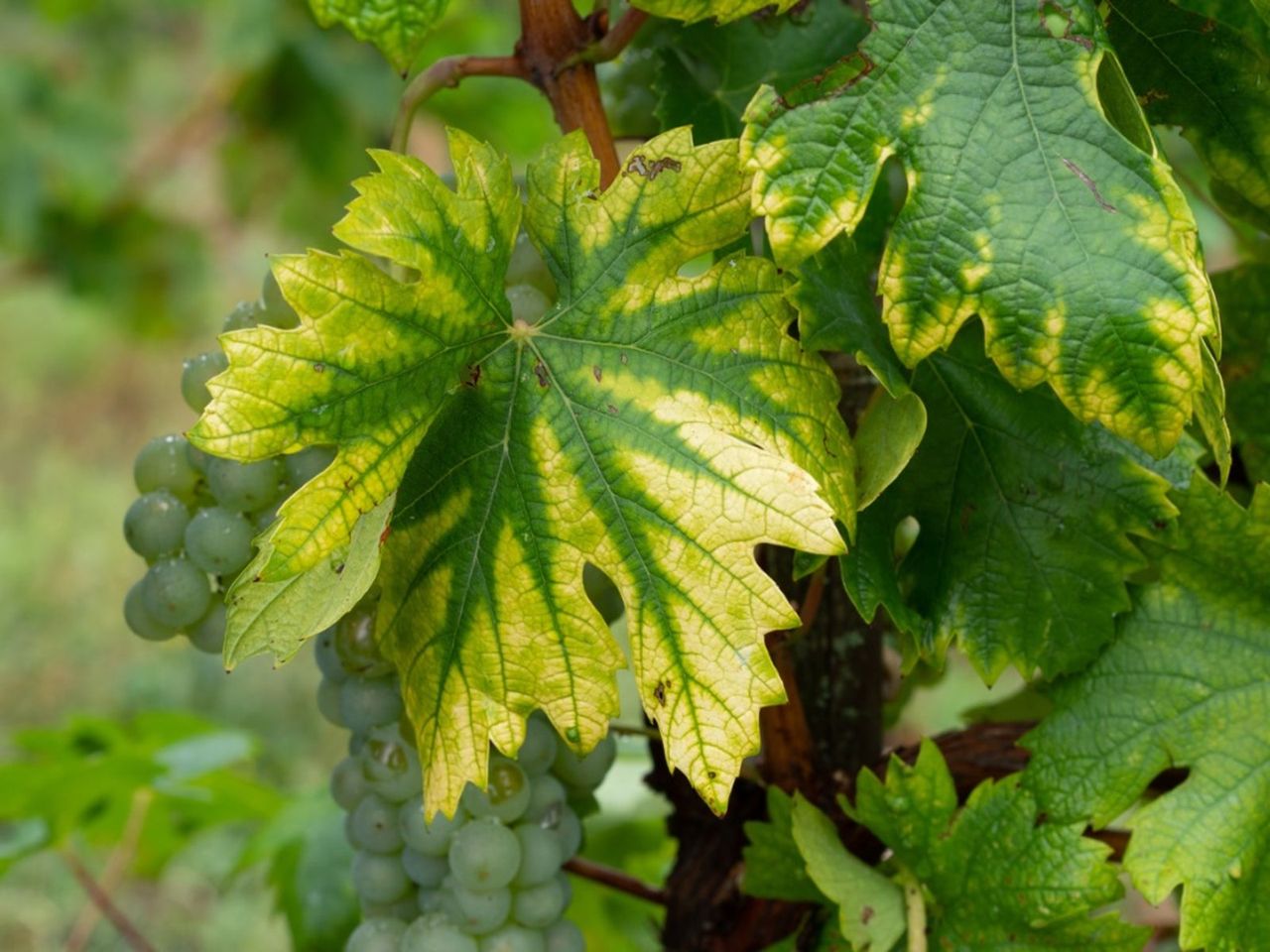Leaf Chlorosis And Iron For Plants: What Does Iron Do For Plants


Iron chlorosis affects many kinds of plants and can be frustrating for a gardener. An iron deficiency in plants causes unsightly yellow leaves and eventually death. So it is important to correct iron chlorosis in plants. Let's look at what does iron do for plants and how to fix systemic chlorosis in plants.
What Does Iron Do for Plants?
Iron is a nutrient that all plants need to function. Many of the vital functions of the plant, like enzyme and chlorophyll production, nitrogen fixing, and development and metabolism are all dependent on iron. Without iron, the plant simply cannot function as well as it should.
Symptoms for Iron Deficiency in Plants
The most obvious symptom of iron deficiency in plants is commonly called leaf chlorosis. This is where the leaves of the plant turn yellow, but the veins of the leaves stay green. Typically, leaf chlorosis will start at the tips of new growth in the plant and will eventually work its way to older leaves on the plant as the deficiency gets worse. Other signs can include poor growth and leaf loss, but these symptoms will always be coupled with the leaf chlorosis.
Fixing Iron Chlorosis in Plants
Rarely is an iron deficiency in plants caused by a lack of iron in the soil. Iron is typically abundant in the soil, but a variety of soil conditions can limit how well a plant can get to the iron in the soil. Iron chlorosis in plants is normally cause by one of four reasons. They are:
- Soil pH is too high
- Soil has too much clay
- Compacted or overly wet soil
- Too much phosphorus in the soil
Fixing Soil pH That Is Too High Have your soil tested at your local extension service. If the soil pH is over 7, the soil pH is restricting the ability of the plant to get iron from the soil. You can learn more about lowering soil pH in this article. Correcting Soil That Has Too Much Clay Clay soil lacks organic material. The lack of organic material is actually the reason that a plant cannot get iron from clay soil. There are trace nutrients in organic material that the plant needs in order to take the iron into its roots. If clay soil is causing iron chlorosis, correcting an iron deficiency in plants means working in organic material like peat moss and compost into the soil. Improving Compacted Or Overly Wet Soil If your soil is compacted or too wet, the roots do not have enough air to properly take up enough iron for the plant. If the soil is too wet, you will need to improve the drainage of the soil. If the soil is compacted, oftentimes it can be difficult to reverse this so other methods of getting iron to the plant is usually employed. If you are unable to correct the drainage or reverse compaction, you can use a chelated iron as either a foliar spray or a soil supplement. This will further increase the iron content available to the plant and counter the weakened ability of the plant to take up iron through its roots. Reducing Phosphorus in the Soil Too much phosphorus can block the uptake of iron by the plant and cause leaf chlorosis. Typically, this condition is caused by using a fertilizer that is too high in phosphorus. Use a fertilizer that is lower in phosphorus (the middle number) to help bring the soil back in balance.
Gardening tips, videos, info and more delivered right to your inbox!
Sign up for the Gardening Know How newsletter today and receive a free copy of our e-book "How to Grow Delicious Tomatoes".

Heather Rhoades founded Gardening Know How in 2007. She holds degrees from Cleveland State University and Northern Kentucky University. She is an avid gardener with a passion for community, and is a recipient of the Master Gardeners of Ohio Lifetime Achievement Award.
-
 7 Vegetables To Plant In April: Start Indoors Or Outside For A Bumper Summer Harvest
7 Vegetables To Plant In April: Start Indoors Or Outside For A Bumper Summer HarvestAchieve your growing ambitions with these best vegetables to plant in April – including cold-hardy crops to sow direct and tender varieties to start indoors
By Mary Ellen Ellis
-
 Cut Flower Garden For Beginners: 8 Easy Decorative Floral Plants For Newbies To Grow
Cut Flower Garden For Beginners: 8 Easy Decorative Floral Plants For Newbies To GrowAre you new to growing decorative florals for bouquets and ornamental displays? A cut flower garden for beginners is well within reach if you grow these flower seeds
By Tonya Barnett